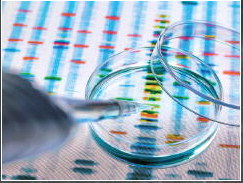Teachable Moment


the Teachable Moment
Is Penicillin still an important medicine?
Penicillin, which revolutionized the practice of medicine in World War II, remains a “wonder drug” almost 90 years later, and its importance is still growing.
In 1928 Alexander Fleming (1881-1955), a British scientist at Oxford, engaged in research on bacteria, examined his petri dishes containing staphylococcus. One dish was littered with the bacteria, except for one spot that contained mold, which was later identified as penicillin. Continuing to study the mold and finding that it did kill certain bacteria, he published his findings in 1929.
Ernst Chain (1906-1979) and Howard Florey (1898-1968) came to work at Oxford in the 1930s and were able to help purify penicillin, making it usable as a drug. There had previously been no medicine that could prevent the diseases created by bacteria. Together, Fleming, Chain, and Florey shared the 1945 Nobel Prize in Physiology or Medicine for their discovery.
Almost overnight, the antibiotic tamed a host of infectious diseases that had crippled and killed people since ancient times. It is still the best medicine for infections such as gonorrhea, syphilis, impetigo, “strep” throats, pneumococcal pneumonia, sinusitis, childbirth fever, lung abscesses and spinal meningitis. Penicillin’s special ability is that it affects only actively multiplying bacteria without harming human cells.
The development of penicillin also produced more knowledge about the interaction of the human body and chemical agents, leading to production of safer medicines and to the creation of synthetic drugs. The main infections that doctors treat every day are caused by strains that succumb to penicillin therapy, making penicillin the most widely used class of antibiotics.





